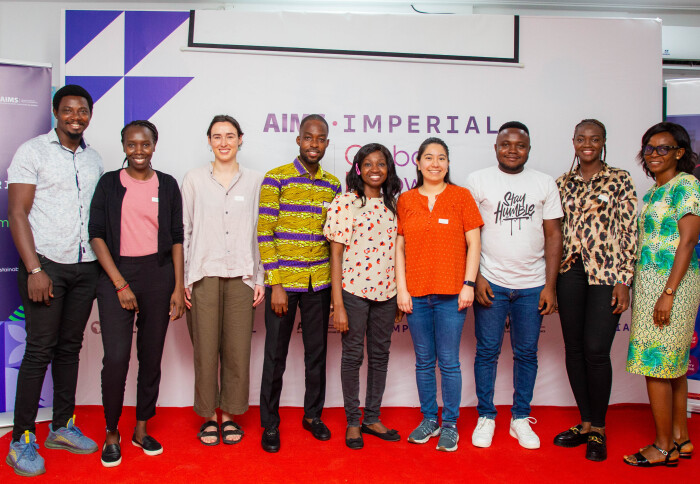Researchers from UK and Ghana collaborate on healthy and sustainable cities

Researchers from Imperial and the African Institute for Mathematical Sciences (AIMS) worked together on the challenges of rapid urbanisation.
The AIMS-Imperial Global Fellows Programme saw 40 doctoral researchers collaborate during a week-long programme in Accra on urban innovation for healthy and sustainable cities.
The programme brought together PhD students, researchers, and academic experts from AIMS, the University of Ghana, and Imperial College London to explore innovative solutions for transforming urban spaces into healthier, more sustainable environments.
The Global Fellows Programme (GFP) is a five-day professional skills course which prompts students to improve their teamwork skills, self-reflect and facilitate potential future collaborations.

At the end of the programme the teams presented their accelerator projects to a panel of judges. The winning team proposed a solution to prevent wastage of overly ripe fruits and vegetables, addressing the problems associated with disposal of waste food. Their solution would also contribute to the reduction of methane emissions which are responsible for around 30% of the rise in global temperatures since the industrial revolution.

This was the second AIMS-Imperial Global Fellows Programme, building on the success of the first programme held in Rwanda last year. The next AIMS-Imperial Global Fellows Programme will take place at Imperial in London in July 2025.
One of the Imperial students taking part in the programme said: “I really enjoyed the programme, especially getting to meet and work with students from Ghana, learn about their research, but also their daily lives, customs, ideas, and challenges they are facing in their country.”

A participant from AIMS said: “The programme helped me develop my abilities in an innovative way, while also having fun and creating new connections.”
A student from the University of Ghana said: “The programme was a truly memorable experience. The vibrant atmosphere, the engaging discussions, and the camaraderie among the participants created a stimulating and supportive environment.”
Article text (excluding photos or graphics) © Imperial College London.
Photos and graphics subject to third party copyright used with permission or © Imperial College London.
Reporter
Stephen Johns
Communications Division